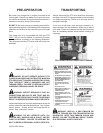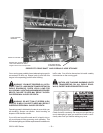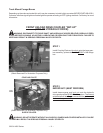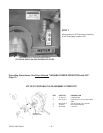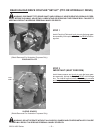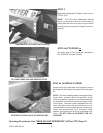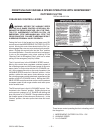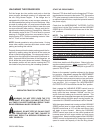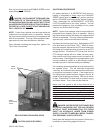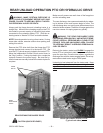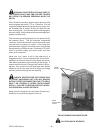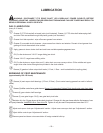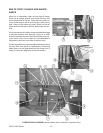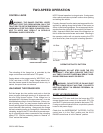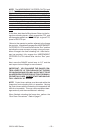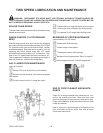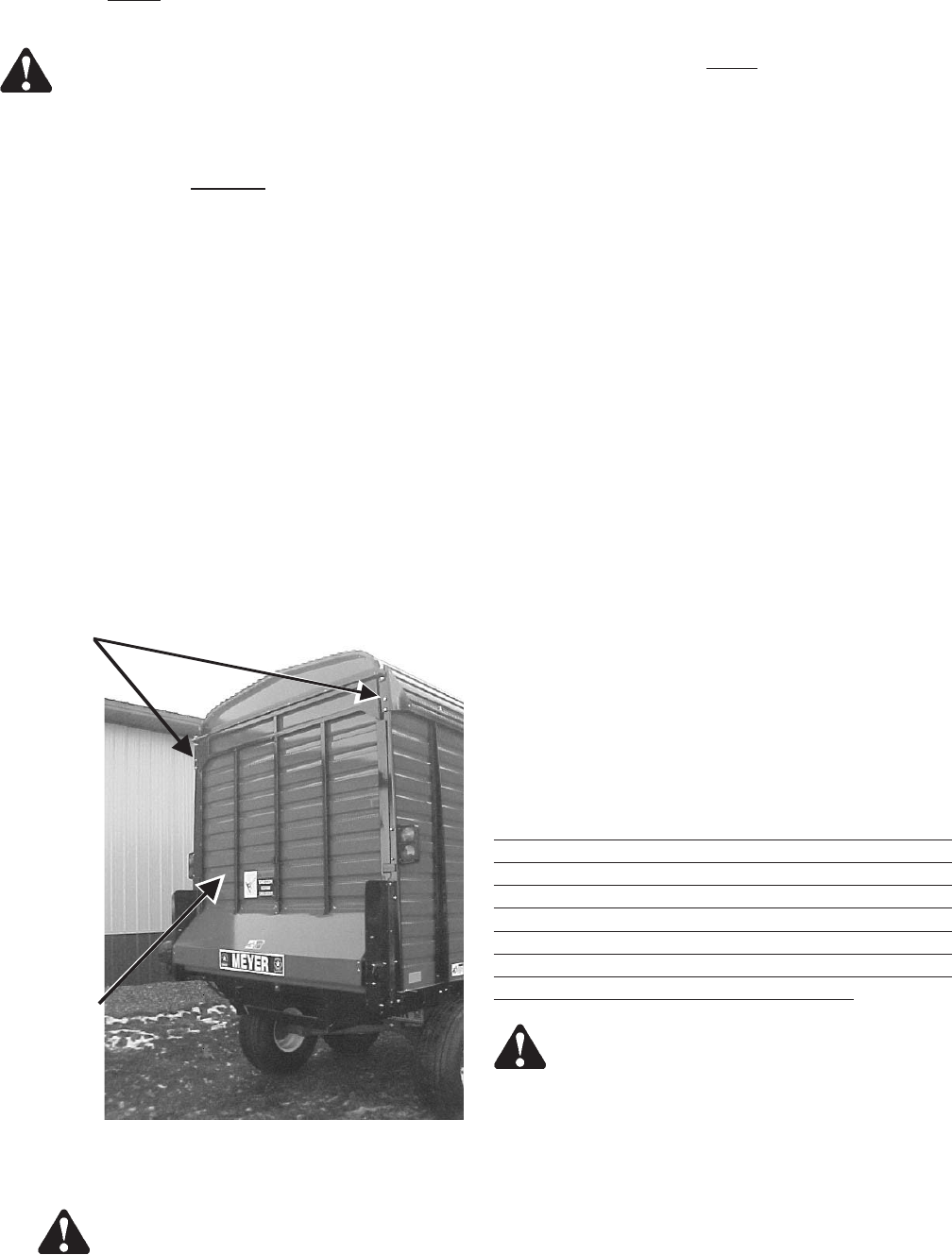
Slow up, but do not stop the VARIABLE SPEED control
when shifting to “HI” RANGE.
CAUTION: YOU CAN MOVE THE RANGE CON
-
TROL LEVER TO “HI” FOR CLEAN-OUT AT THE END
OF UNLOADING AND YOU MAYALSO FIND IT TO BE
AN APPROPRIATE SPEED SELECTION FOR SMALL
OR PARTIAL LOADS.
DO NOT STARTAND UNLOAD
FULL LOADS IN “HI” RANGE.
NOTE: Control lever settings must be made while the
forage box front unloading unit is in operation. Moving
the control levers with the unloading unit stopped will be
difficult or impossible. This may cause equipment dam
-
ages and may void the manufacturer’s warranty.
When finished unloading the forage box, perform the
“Shut Down Procedures.”
SHUTDOWN PROCEDURES
For proper operation, it is IMPORTANT that when un
-
loading is completed to slowly
return the VARIABLE
SPEED control lever to the “Neutral” position and then
the HI-LO RANGE control lever to the “Neutral” position.
Then, disengage the INDEPENDENT OUTFEED
CLUTCH control lever to the “Stop” position. This will
prepare the forage box front unloading unit for proper
“start-up” on the next load of forage.
NOTE: Control lever settings must be made while the
forage box front unloading unit is in operation. Moving
the control levers with the unloading unit stopped will be
difficult or impossible. This may cause equipment dam
-
ages and may void the manufacturers warranty.
Idle down the tractor engine rpms. Disengage the PTO
drive shaft and turn the tractor “OFF.” When all move
-
ment has stopped, disconnect the PTO drive shaft from
the forage box unloading tractor and return it to the PTO
storage bracket. Secure the PTO drive shaft into the
PTO storage bracket with the rubber tie down strap.
Shut down the silo filling blower tractor and wait for all
motion to stop. If the forage box is equipped with a cross
conveyor extension, raise it up to the transport position
and securely latch if before traveling on roadways.
The unloading process described is to be performed by
the operator alone. This will eliminate unexpected
“start-ups” and minimize other hazards that could result
by more that one person in control. If the forage box or
silo filling blower should become clogged, shut off all
power to the forage box and blower. Wait for all motion
to stop. Disconnect PTO drive shaft or hydraulic supply
and return hoses. Then, clean out the machine.
Never use “live” power to aid in the clean-out of a
clogged machine. If any mechanism fails, move the for
-
age box to a safe work area and then repair the mecha
-
nism before proceeding with unloading of the forage. If
repairs require the removal of forage from inside of the
forage box, then removethe reardischarge door (bolted
hinges on top of each side) and then empty the forage
manually by hand through the rear opening.
DANGER: NEVER ENTER THE FORAGE BOX
OR FRONT UNLOADING UNIT FOR ANY REASON
WITHOUT FIRST DISCONNECTING PTO DRIVE
SHAFT OR HYDRAULIC HOSES FROM POWER
SUPPLY. FAILURE TO HEED MAY RESULT IN SERI
-
OUS PERSONAL INJURY OR DEATH.
Never enter the forage box for any reason if there is any
possibility of power being applied to the unit.
3200 & 4200 Series -- 17 –
REAR OPENING DISCHARGE DOOR
CAUTION (QUICK RELEASE!)
HINGE
BOLTS
REAR
DISCHARGE
DOOR



